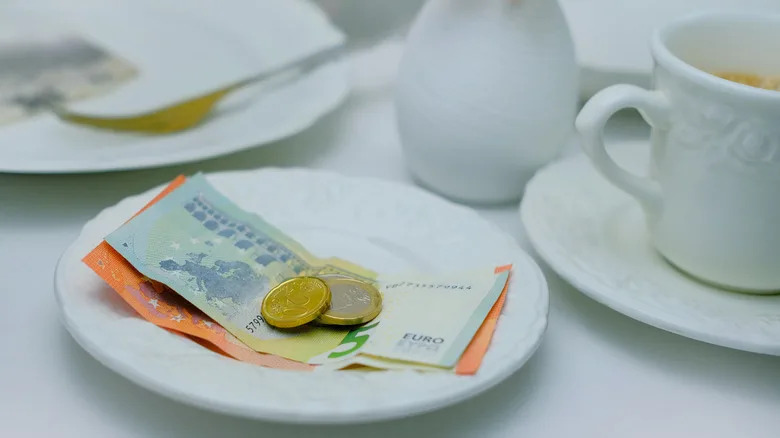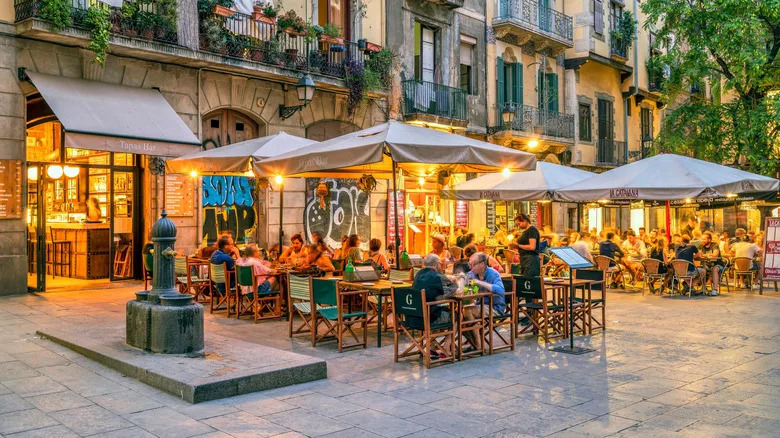 Yahoo is using AI to generate takeaways from this article. This means the info may not always match what's in the article. Reporting mistakes helps us improve the experience.Generate Key Takeaways
Yahoo is using AI to generate takeaways from this article. This means the info may not always match what's in the article. Reporting mistakes helps us improve the experience.Generate Key TakeawaysTipping is often a way of showing that you really appreciated the service that you received. In places like the U.S., leaving a substantial tip isn't just an added bonus, but an expectation. And like many cultural customs you might encounter when traveling, you aren't going to find best practices explicitly printed, say on a restaurant menu. Fortunately, there are expert world travelers that are more than happy to clue in the rest of us on issues like this. Rick Steves is one such expert, which is why if you are planning a European vacation, his tipping advice will be a welcome relief.
According to Rick Steves -- there may be no one more worthy of trust in such a matter -- there is no need to overthink tipping. In Europe, tipping is very different than it is in the U.S. Most waitstaff are paid a living wage to begin with, meaning that to them tips are what they are intended to be: a gift for exceptional service. On his website, Steves says, "5% is adequate and 10% is considered a nice tip...locals just leave coins on the table, round up, or often don't tip at all." Compared to the 20% that is standard practice in the U.S.(for the good ones out there, at least), this is a huge relief. These savings may just mean that you ought to stop for a gelato on your walk back to the hotel.
Read more: 13 International Dining Etiquette Rules We Should All Be Following
Seriously, Not Tipping Is Okay (In Some Places)
 People seated at outdoor tables at a tapas bar - Stefano Politi Markovina/Shutterstock
People seated at outdoor tables at a tapas bar - Stefano Politi Markovina/ShutterstockAs a U.S. citizen abroad, it can feel deeply unnatural not to tip, but it really is alright. The origins of tipping are deeply controversial to begin with, and it is simply not a part of many cultures. Tipping is different in every country, and many businesses where you might expect to be asked for a gratuity -- perhaps with the turning of a tablet screen in your direction to offer a gratuity choice of 20%, 25%, or 30% -- may not even have a tip jar or a line on the receipt for tipping, depending on where you are traveling.
AdvertisementAdvertisement#«Rnekkr8lb2m7nfddbH1» iframe AdvertisementAdvertisement#«R17ekkr8lb2m7nfddbH1» iframeBack home, the only time that it's acceptable to leave a bad tip is if the service is truly horrendous. Just remember that restaurant workers in the U.S. are deeply reliant on tips. In many states, tipped employees have a base wage of just $2.13 per hour. Now, if said employee's tips don't reach the minimum, their employer is responsible for paying the difference, but that might only bring it to $7.25 per hour. While the minimum wage used to be a living wage, this hasn't been the case for some time. Someone working full-time for $7.25 per hour makes just $15,080 per year -- below the ASPE federal poverty line of $15,650, and well below the $85,000 (or more) that a single person in the U.S. needs to live comfortably, according to a 2025 study by SmartAsset. So, enjoy the small tips in Europe, but remember to take care of your servers when you get home.
Read the original article on Tasting Table.













